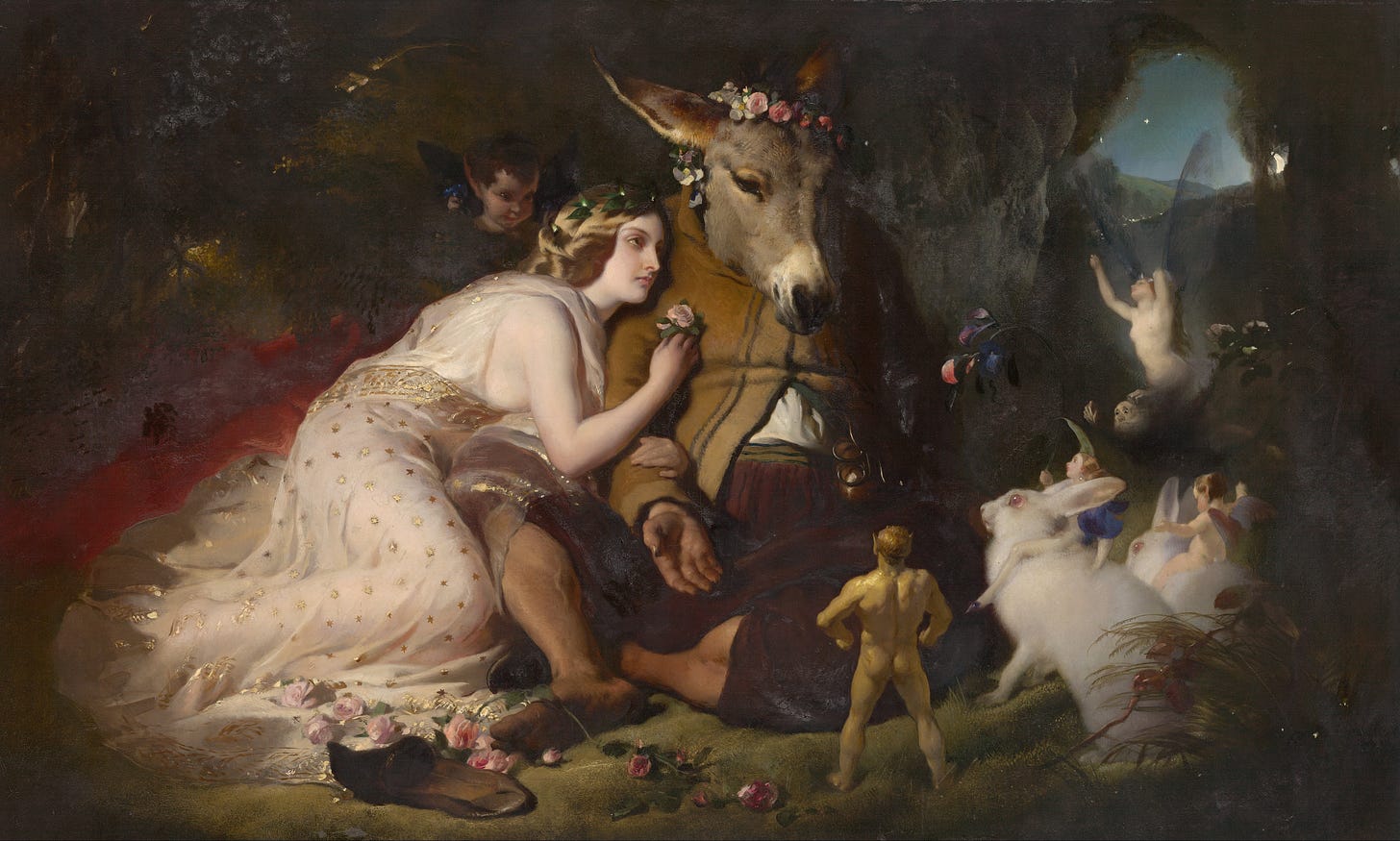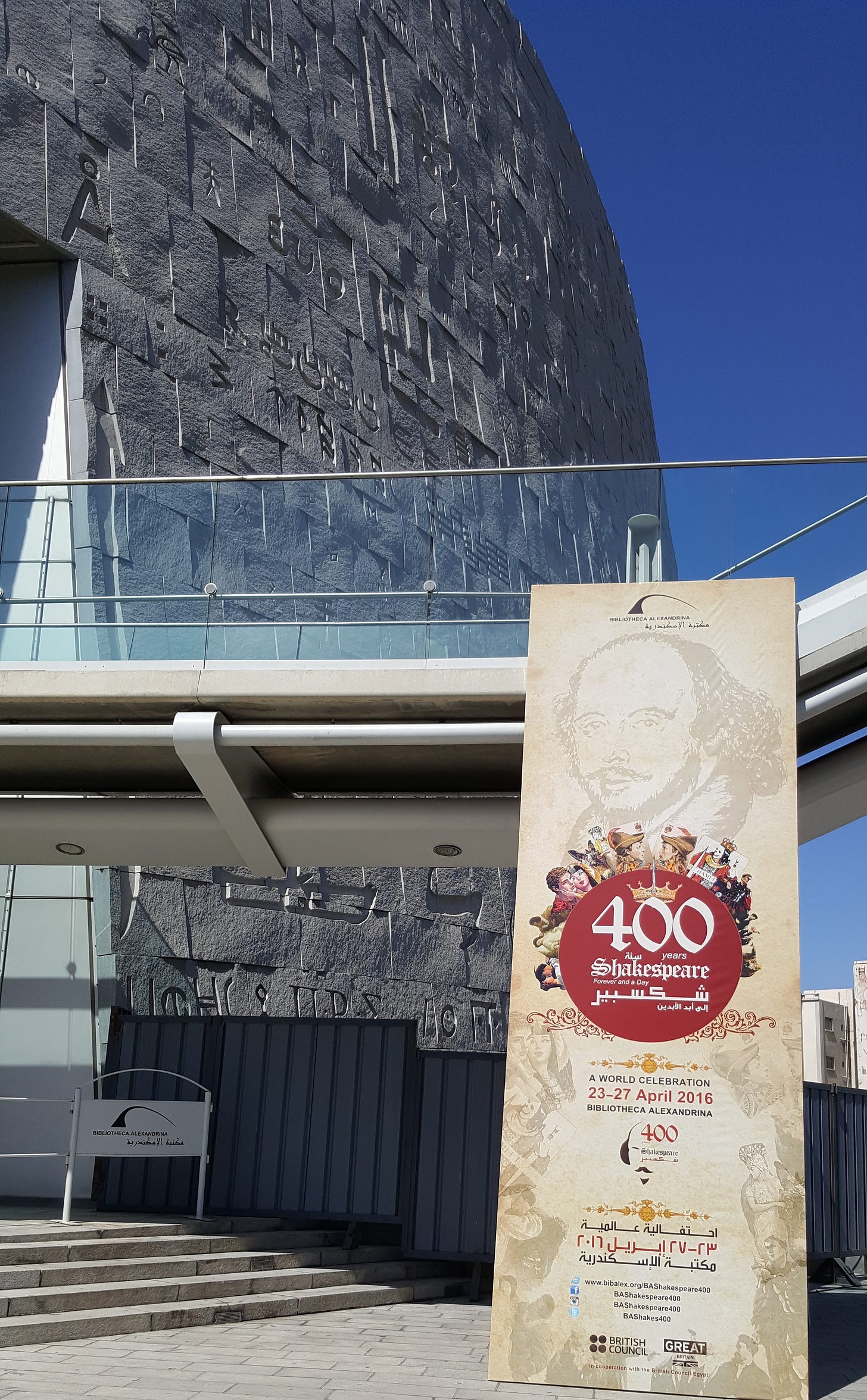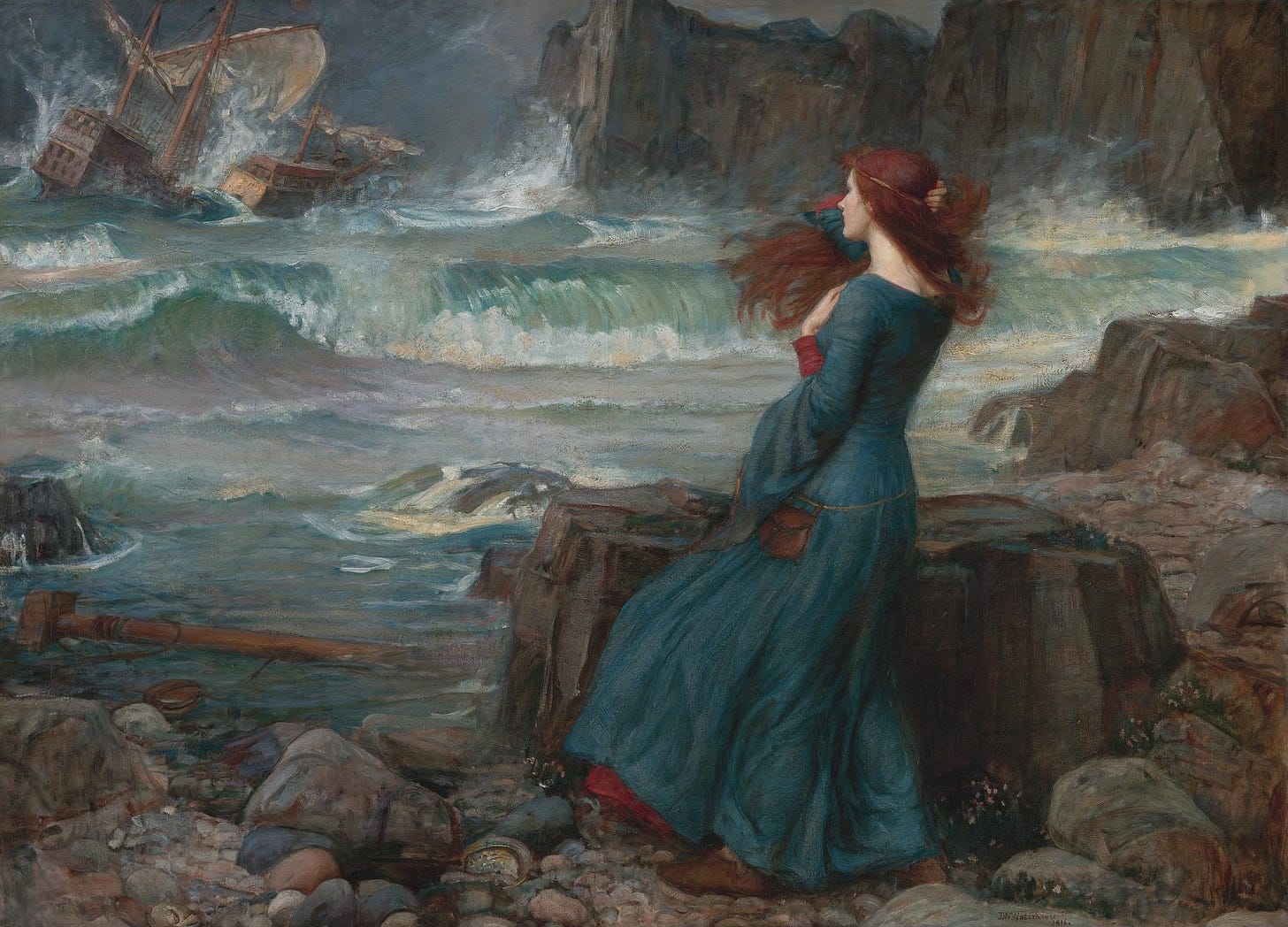Saving Shakespeare
What I learnt from reading everything he wrote

How It Began
It was 20161. The world, or at least a good part of it, was celebrating Shakespeare. It was the 400th anniversary of his death, the 450th anniversary of his birth and a good excuse to consider Shakespeare and his role or status in today’s world. There was ample evidence of his reach; his plays had been translated into over 100 languages and were studied in half the world’s schools. Romeo and Juliet alone had been performed in at least 24 countries in 16 languages over the previous decade. He was the world’s most Googled author, with ‘To be, or not to be: that is the question’, his most searched for quote. He was everywhere.
In my enthusiasm, I set out to read all the plays and all the poetry he wrote (and doubtless, amongst it all, plenty that he didn’t); I called it my Every Word He Wrote pledge. It started out partly as a challenge to myself.
But somehow, before setting out to fulfil my pledge, I conceived the idea that I wanted to “save” Shakespeare. When asked by a university to give a talk on Shakespeare to some of its students, I seized on this notion of “saving Shakespeare” and used it as the theme of my talk.
This was a little presumptuous, to say the least.
Fatuous, in fact.
And anyway, what exactly would it mean to want to save him? And from what?

All in a Day’s Work
I should say here that it was part of my job to celebrate these anniversaries. I was then working for the UK’s international organisation for cultural relations and educational opportunities. I felt lucky to be in Egypt, where, half a century before, we had facilitated a number of large Shakespeare productions, a couple of which took place in the shadows of the pyramids at Giza, and one was a joint Anglo-Egyptian production of Antony and Cleopatra (of course). In 2016, there were more modest celebrations, which included a symposium and some performances at the amazing Bibliotheca Alexandrina. A famous British Shakespearean actor (the latest in a long line of them to visit the country), Simon Russell Beale, flew out to Alexandria to give a lecture.
So what was running through my mind at that point?
I guess that one of my misgivings was that in any large-scale celebration of the anniversary of cultural figures or institutions, it is possible for the blandness and inanity of pageantry and ceremony to flatten out or distract from the beauty of the work. And for me, it’s the work that matters—the dazzling stagecraft, the sublime poetry, and the endlessly fascinating characters.
Below, I set out a few of the things I thought Shakespeare, so widely celebrated for his genius but not as often explored for his merits, needed saving from as I prepared my speech at the beginning of that anniversary year.
Strange & Scary Shakespeare
With watered-down plot summaries, modernised or translated versions and adaptations for other media, it’s all too easy to overlook the strangeness of some of the plays. Some of the stuff going on is weird, but in a good way, right? How about Cymbeline, Act V, scene 4, where the stage direction is: “Jupiter descends in thunder and lightning, sitting” (using the latest in theatrical technology at the Blackfriars theatre). How about that for a show stopper? Although this action may not sit easily with the image of the playwright, who feels modern in the way he speaks to us across the ages, I don’t think it is right just to edit it out or pretend it away.
Embracing the oddity should take us on a rewarding journey towards understanding the poet and the cultural and intellectual universe he inhabited. And take the famous stage direction in The Winter’s Tale: “[Exit, pursued by a bear].” We laugh at it now, but this would have been scary on the Jacobean stage. And it is a crucial point in the plot when the death of Antigonus, savaged by the bear (as well as the loss of all the crew of the ship who were transporting him), combined with the salvation of the baby, Perdita, sets up the action for the rest of the play.
In A Midsummer Night’s Dream, we have the magic tricks of Puck and Oberon, including a man whose head is temporarily turned into that of a donkey. The rather febrile antics of The Comedy of Errors are conducted against the exotic background of Ephesus—now Efes in Turkey—and in a mood of constant wonderment. As one character describes the town:
They say this town is full of cozenage,
As, nimble jugglers that deceive the eye,
Dark-working sorcerers that change the mind,
Soul-killing witches that deform the body,
Disguised cheaters, prating mountebanks,
And many such-like liberties of sin
Act I, sc. 2, (Antipholus of Syracuse)
It’s a wonderful passage, and none of these riches, none of this strangeness, should be forgotten during the knockabout comedy of the piece or elided by bland praise or easy descriptions that reduce the work to something like a pantomime.
It’s in the Detail
Another way in which a closer reading of the work helps to defeat the smoothing effect of general praise is through local detail. So I believe that a lot of the beauty of Shakespeare stems from the local detail, from sometimes trivial incidents; these are pieces of grit in the oyster shell that get covered in a coating of sublime language and wondrous theatricality.
The history plays are a good example. Even for those of us from the UK, the dynastic history of kings of the 14th or 15th century in England, for instance, is rather obscure and mostly not very interesting (except, of course, for the famous battles where the English beat the French...). But out of this rather detailed (if often inaccurate) history, Shakespeare conjures some of his finest language and scenes, not to mention characters. Consider Henry IV, Part I, Act I scene 1: (Henry IV is speaking:)
No more the thirsty entrance of this soil
Shall daub her lips with her own children's blood;
Nor more shall trenching war channel her fields,
Nor bruise her flowerets with the armed hoofs
Of hostile paces:
“No more shall trenching war channel her fields.” This is wonderful poetry, created out of obscurity, which takes meaning and vigour from its circumstances and whose value is enhanced by its very particularity, even as it transcends it.
The Play’s the Thing
An absolutely crucial way that Shakespeare escapes the blandness of celebrity is through his immense skill as a dramatist. Time and time again we are astonished, scared or amused by the action on the stage, however well we know the play. Some of this is achieved through the arrangement of scenes (which gives lots of scope to good directors and actors to show their creativity and craft), and other times through the sheer beauty of the poetry.
But another way is through his wonderful sense of dramatic language, which moves the action forward on its own. A great example of this is Mark Antony’s great speech in Act III, scene II of Julius Caesar. This speech has enjoyed a long and significant afterlife, both as an example of successful political persuasion and also as a source of burlesque (I am thinking of the comedy that has been produced around the phrase “lend me your ears”). But above all, it is the great turning point of the play, a pivotal moment which drives all the rest of the action. And as such, it is best appreciated at a live performance where the sheer drama of the moment rescues it from cliché or pastiche.
Familiarity Breeds Contempt
Another thing I felt Shakespeare needed saving from was the sheer familiarity of his work. We “know” Hamlet, we “know” Twelfth Night, and so in our minds, we reduce these great plays to simple stories or the drama of a single character. But these plays contain worlds of rich details, often stories within stories or plays within plays (as is the case in Hamlet). Let me take Romeo and Juliet, with probably the best-known plot in all of Shakespeare (or even in all drama?). But seeing this as simply boy meets girl/girl meets boy and their falling in love, with a family feud preventing their happiness and leading to their deaths, is, while powerful enough, not the whole story. There are other dramas here, especially the tragedy of Mercutio, sometimes described as the play’s true tragic hero. He is much given to obscenity in his speech—so much so that for centuries the role was suppressed or at least greatly reduced in performance.
But Mercutio’s astonishing “Queen Mab speech (i,4) takes us to a very different place from the teenage romance we may think the play to be—to a place of nightmares and faeries and demons. Queen Mab is “the faeries’ midwife”. She is also:
Not so big as a round little worm
Prick'd from the lazy finger of a maid;
Her chariot is an empty hazel-nut
Made by the joiner squirrel or old grub,
Time out o' mind the fairies' coachmakers.
And in this state she gallops night by night
Through lovers' brains, and then they dream of love;
Mercutio has been linked to the god Mercury, who has been described in this way
“Above all he is the god of boundaries and frontiers. He is a figure peculiarly appropriate to a play that has so many scenes of twilight, the edge of the night and day, and so many scenes set on the edges of houses and monuments and cities, at windows and the mouths of tombs. And a play in which so many references to messengers and angels (which means ‘messenger’), a play in which a crucial message goes fatally astray.”2
Partly this amplifies my point earlier about the strangeness in Shakespeare and about the local detail being important, but it also highlights the wider point of the value of getting beyond the headlines—the Shakespeare we think we know—to appreciate the the puzzling yet rewarding complexities of the plays as they are written, not as we imagine them
Beware the Flag Wavers
I also believed that the Bard needed saving from small-minded nationalism and triumphalism in his own country.
Shakespeare is sometimes seen popularly as a chronicler of a glorious English history, with noble kings such as Henry V winning great battles against the French, plays full of stirring speeches exhorting English troops to fight bravely against their enemies And, of course, such battles do occur, and such speeches do exist and are rightly celebrated for their rhetorical power. It’s hardly surprising that he sometimes wrote in favour of the then-current national or dynastic interest. Yet even in the history plays, not all the English are noble, not all the Tudors are honest and not all the enemies are evil or cowards. And indeed, taken as a whole, it is hard to see Shakespeare as an ultra-nationalist. His characterisation is too complex for that, such as in the case of Henry V, portrayed as a careless, thoughtless youth in Henry IV, Part I. There are cowards in the English armies—for example, the famous character of Falstaff.
A suggestion of how Shakespeare transcends the nationalist agenda comes from the critic Andrew Dickson:
“He was more engaged by the spectacle of nations breaking down, of countries at war with themselves; it makes for better drama, apart from anything else.”3
And there is another dimension to this: social class. The great English novelist, Angela Carter, was a huge fan of Shakespeare. Yet, to quote her excellent biographer, Edmund Gordon, in her view,
“He was the national poet but more than that he was a symbol of ‘national identity’ - a concept [Carter] tended to view as a means by which the culture of the ruling classes asserted itself over the rest....[She] was deeply suspicious of this tendency, feeling that England’s greatest writer had been hitched to a particular (pompous, posh, patrician) version of Englishness.”
Shakespeare is too great a writer to be reduced to, or traduced by, any particular political agenda, and I believe we should be cautious of attempts to put him to political use.

Shakespeare Tourism
And finally, Shakespeare should be saved from pageantry, I thought. I felt it was important to keep Shakespeare well away from the simplifications of the tourist industry. I accept that some tourists visiting the UK may have an interest in the dreary pageantry of Beefeaters and guardsmen in red uniforms lined up outside the architectural awfulness that is Buckingham Palace.
But I fear for the Bard when he is lumped in with all such nonsense and when tourists are taken in hordes to visit his birthplace. The Shakespeare industry worries me, though I would differentiate this from the excellent work done by the Globe and the Sam Wannamaker theatres in South London, where it is possible these days to see exciting performances of his work in theatres that are very much like the ones he worked in himself. It is, ultimately, the work that matters, not the legend, the biographical speculations or the empty ritual of tourist parades.
All’s Will
Of course, I said all this (and more!) in my lecture and saved no one from anything, least of all Shakespeare.
The greatest thing I learned from reading him in 2016 was that his plays and poetry contain almost inexhaustible riches. His work can, after all, look after itself, as it has done for centuries.
Of course, I realised that I’d been trying to save the wrong person.
Because in the end, my project—giving the lecture and reading every word he wrote within that anniversary year—was a way of saving myself from taking all that truly wonderful work for granted.
And that year spent clutching a copy of a Shakespeare play at every spare moment or on every flight I took soon became a source of huge joy, with many discoveries and surprises along the way, including the staggering beauty of the speeches in Richard II, the near impossibility of making sense of the sonnets, and the gripping drama of Pericles.
Prince Hal says of his strategy of underpromising and overdelivering in Henry IV part I:
And pay the debt I never promisèd,
By how much better than my word I am,
By so much shall I falsify men’s hopes;
And, like bright metal on a sullen ground…
Shall show more goodly and attract more eyes. 4
To adapt to my own case: I feel I have paid a debt I never promised and have found myself richer in spirit for reading all his words, which to me still shine like bright metal on a sullen ground.
The year also, of course, that the British people voted the EU. It was an eerie background to this anniversary year, and I think the Bard was quoted in support of both sides of the argument. And Boris Johnson, a leading supporter of the Brexit cause, found himself too busy to complete his book on Shakespeare. A huge loss for scholarship, but a great gain for British politics, of course.
The quote is by Adrian Poole, Emeritus Professor of English Literature at the University of Cambridge (introduction to the Penguin edition, lv)
https://www.theguardian.com/stage/2012/apr/20/world-shakespeare-festival-globe-theatre-rsc
Act I, scene 2






Thank you, Rafa. I agree that he's no one's property. And I'm sure you're right, he'd have loved the idea of still being able to pack a theatre four centuries later.
And then there's the lunatic Shakespeare denialism that denies the evidence and the fact that nobody in his age had doubts about who he was--including the pair of actors who put together the First Folio. It's a huge industry that also ignores the impossibility of the small world of the theater and the world of the court could somehow now know he was someone else.
Over 20 years of attending the Stratford Festival, I saw every play at least and little-performed plays Like John II and Pericles. It was a dazzling experience and sometimes we'd go back to see a performance twice.